India: Kashmir sees surge in intimidation of journalists, violation of sources
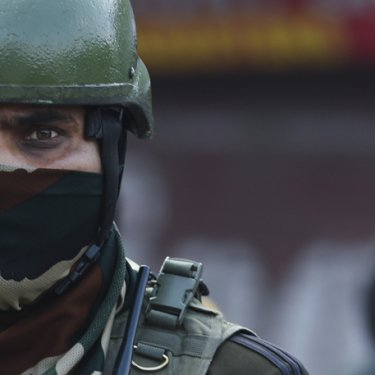
After yet another example yesterday of intimidation of journalists by Indian security forces in the northern state of Jammu and Kashmir, Reporters Without Borders (RSF) is providing a summary of recent cases of police harassment of media personnel and violation of the confidentiality of their sources in the Kashmir Valley.
In yesterday afternoon’s incident, police summarily confiscated the cameras and phones of two TV reporters, Qayoom Khan of CNN News 18 and Qisar Mir of TV9 Bharatvarsh, in Hakripora, a village in Pulwama district, 30 km southeast of the regional capital Srinagar, where they were covering an operation by the National Investigation Agency (NIA).
“We were filming from a distance when a police officer shouted at us and ordered his men to seize our equipment and mobile phones,” Khan told RSF. The two journalists had to wait six hours before recovering their property – six hours during which the police were able to examine their contacts and the messages they had been exchanging with their sources.
“And of course, they carefully deleted all the photos and video we had taken during the NIA raid,” Mir added.
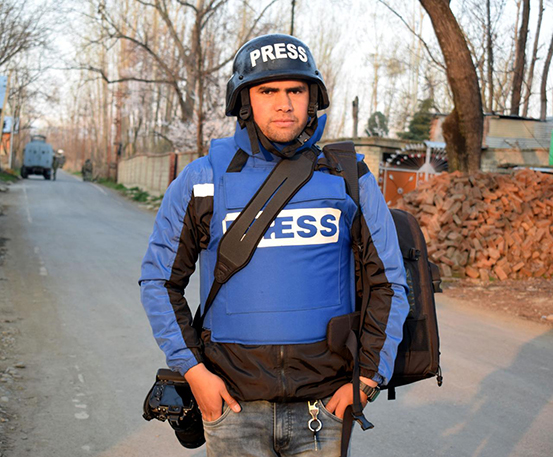 Qayoom Khan works for CNN News 18 (personal photo).
Qayoom Khan works for CNN News 18 (personal photo).Systematic violations
“It is absolutely unacceptable that the police should confiscate equipment from journalists in this utterly arbitrary manner, thereby violating the confidentiality of their sources,” said Daniel Bastard, the head of RSF’s Asia-Pacific desk.
“Such flouting of the principles of press freedom outside of any legal framework is typical of authoritarian regimes. For the sake of easing tension in the Kashmir Valley, we urge the Indian government to allow journalists to do their job by covering the operations of the security forces, and to respect the confidentiality of their sources.”
Mir told RSF that the aggression to which he was subjected by the security forces yesterday was systematic and he cited how, as he was returning home on 29 February after reporting in the village of Babagund, he was stopped by members of the 55th Rashtriya Rifles (55RR), an Indian army counter-insurgency force.
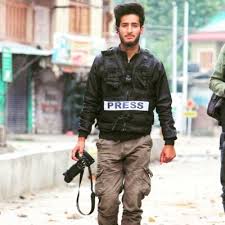
Qisar Mir told RSF about the violence he has been subject to (personal photo).
Although he showed them his press card, the soldiers seized his laptop, mobile phone and camera. “Then they used me as human shield during their door-to-door search operation in the village,” he said. “When I tried to resist, they slammed me against a wall and hit me several times.” They released him after six hours, and after closely examining his equipment.
Journalists “summoned”
It was in Pulwama district that local reporter Kamran Yousuf suddenly saw a score of policemen surround his home in the middle of the night of 16 February. A police officer finally knocked on the door, arrested Yousuf and confiscated his phones.
“They examined my phones and went through everything on them,” he told the Kashmir Press Club. “They asked me about a certain Kamran Manzoor and showed me his Twitter account.” Apparently failing to find what they were looking for, they released Yousuf after two hours. RSF already had occasion to defend Yousuf in February 2018, when he had been detained arbitrarily for more than six months.
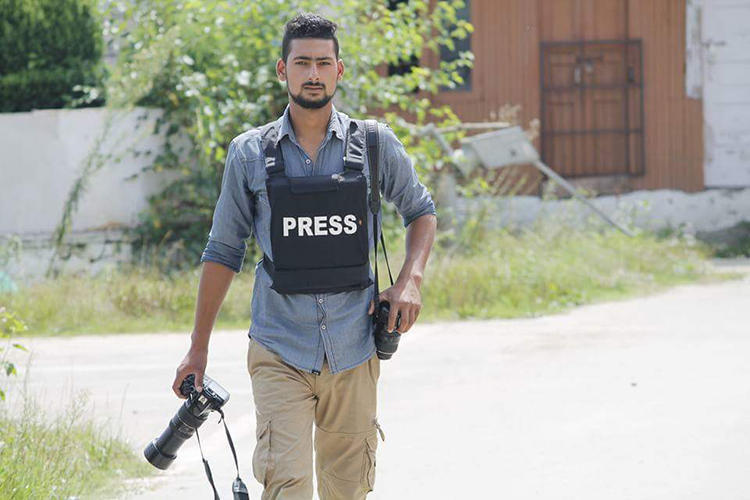
Kamran Yousuf was arrested for alleged "stone-pelting" in 2017 (Younis Khaliq).
Ever since the Indian government stripped Kashmir of its autonomy last August, journalists have been subjected to constant harassment by the police, who want them to reveal their sources, the Kashmir Press Club says.
Two journalists, Naseer Ahmad Ganie of Outlook Magazine and Haroon Nabi of Current News Service, were summoned for questioning by the Srinagar police on 8 February and were interrogated for four hours about a statement by the outlawed Jammu Kashmir Liberation Front which they had published. The police unsuccessfully demanded to know how they came by the statement, Ganie said.
Indian Express correspondent Bashaarat Masood and a colleague from the Scroll.in news website, Safwat Zargar, were detained while reporting in Handwara, in northwestern Kashmir, on 23 December, and were taken to the police chief’s office, where they were questioned about the purpose of their reporting and who they planned to meet.
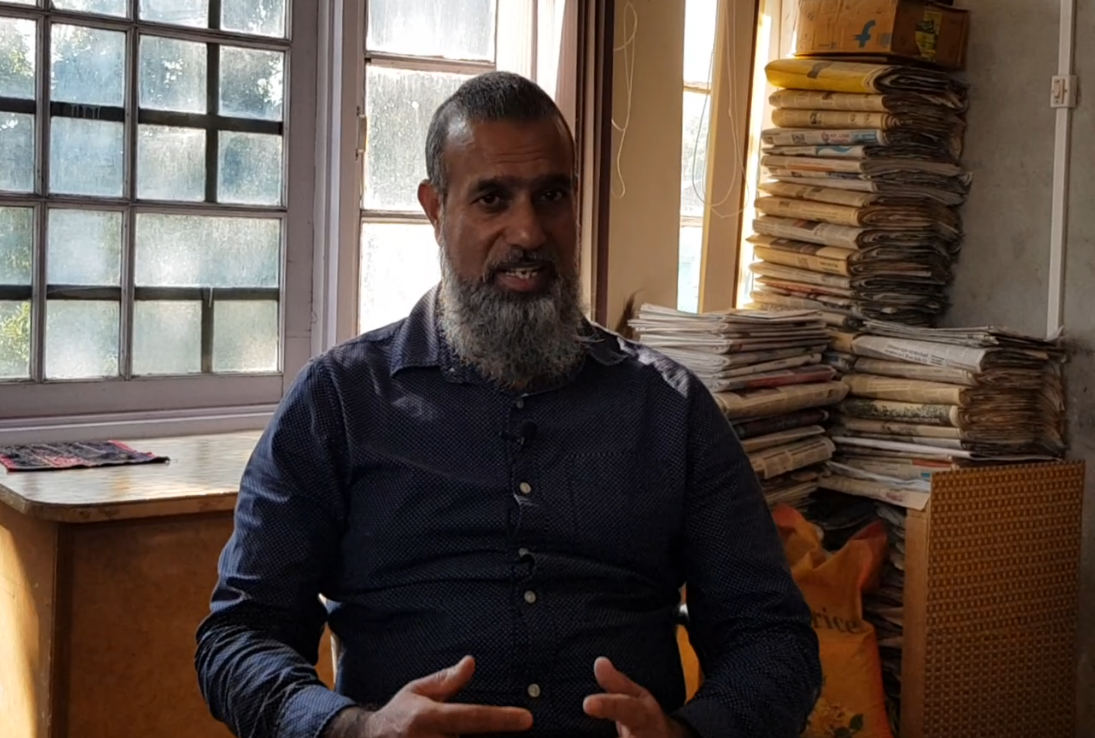
RSF met with Bashaarat Masood in October 2019.
Six days before that, ThePrint website’s Azaan Javaid and NewsClick’s Anees Zargar were beaten by police while covering the dispersal of a protest in Srinagar. Zargar told RSF he was the “victim of a targeted attack because of an article I wrote a month previously.”
Many constraints
Masood and Hakeem Irfan, a reporter for The Economic Times daily, were taken to a counter-insurgency centre in Srinagar on 30 November and were interrogated there about how they had obtained certain documents.
On 1 December, The Hindu newspaper’s Peerzada Ashiq was taken to a police station in Srinagar’s Kothi Bagh district, where he was ordered to reveal the name of the person who had given him official documents that he had used for a story about illegal detentions in the Kashmir Valley.
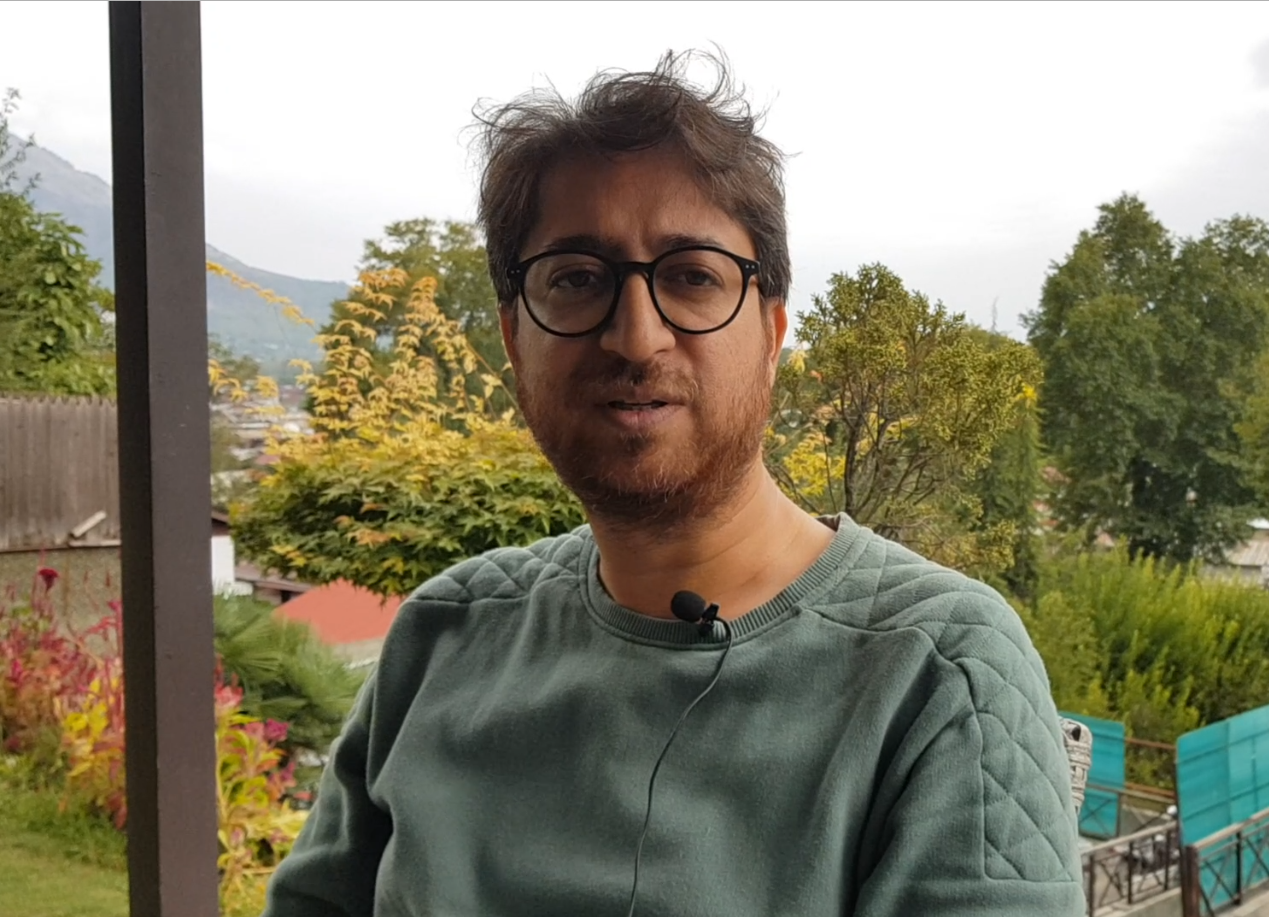
Peerzada Ashiq told RSF about the constraints Kashmiri journalists have to cope with.
Freelance photographer Muzamil Mattoo and Voice of America correspondent Zubair Dar were beaten by police on 1 November and were prevented from covering the Khoje Digar, an annual religious ceremony.
Kashmir Walla’s Irfan Amin Malik was arrested at his home in Tral, 45 km southeast of Srinagar, on 14 August and was questioned all night long about his work.
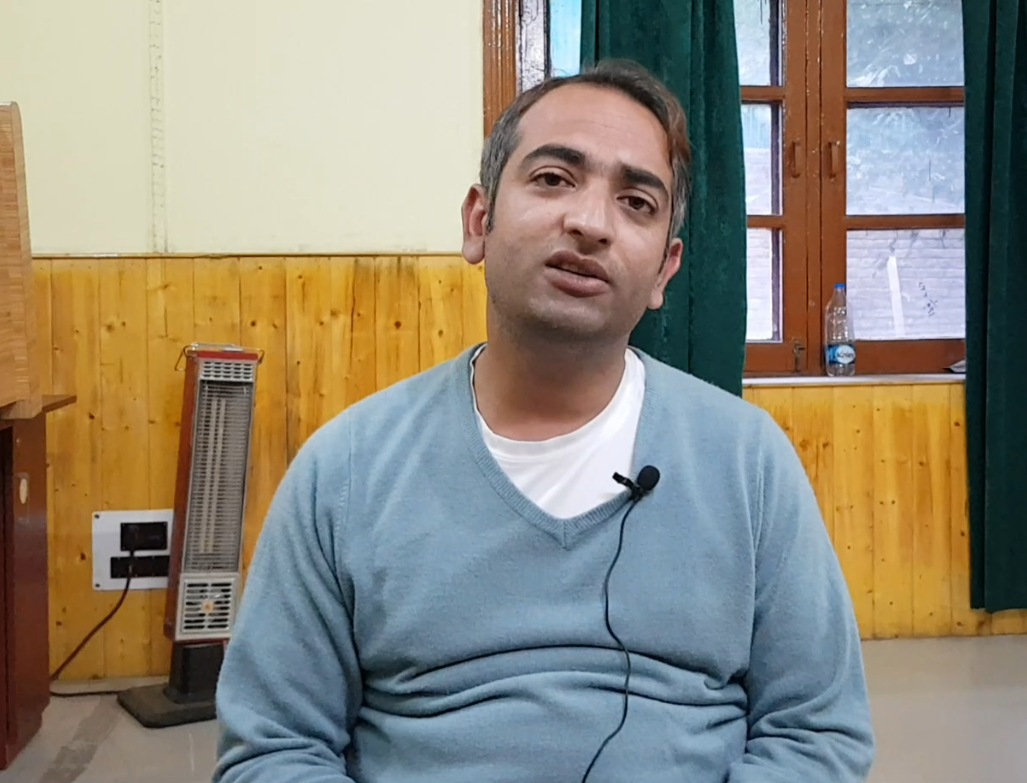
Anees Zargar was the target of police violence in December 2019 (photo: RSF).
On the 100th day after the government repealed article 370 of the 1947 constitution granting autonomy to Jammu and Kashmir, RSF published a series of videos in which Kashmiri journalists detailed all the constraints to which they had been subjected since then.
India is ranked 140th out of 180 countries in RSF’s 2019 World Press Freedom Index.



